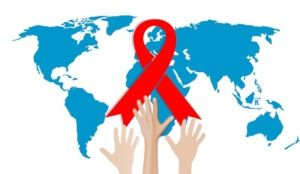News
Copenhagen looks to ‘eradicate’ HIV by 2030
This article is more than 4 years old.
As part of reaching UN-goal, City wants to test people attending sex parties, gay bars and Copenhagen Pride

Joining hands with 300 other cities (photo: Pixabay)
The COVID-19 virus may have commanded the lion’s share of global attention in 2020, Copenhagen hasn’t forgotten about a very different sort of virus: HIV.
The municipality has inked an agreement aiming to end new instances of HIV in the city by 2030.
The city will begin to strive towards reaching the ambitious UN goal from January 1.
It also means that the Danish capital joins a network of over 300 ‘Fast-Track Cities’ working together to tackle HIV.
A new secretariat will be established in 2021 to ensure that 95 percent of HIV patients receive treatment to the point where they can’t infect others.
READ ALSO: Ground-breaking HIV research could have immense impact
Difficult, not impossible
Copenhagen will also significantly increase its testing capacity, especially within risk groups.
To this end, the city will seek out sex parties, gay bars, Copenhagen Pride and other arenas of night life to test those who may be infected without knowing it.
According to the foundation Aids-Fondet, the task at hand is difficult, but not unrealistic.
“The biggest challenge is reaching those who hide their sexuality – such as being married to a woman but hiddenly also having sex with men. We have a hard time getting this group to the test centres,” Andreas Gylling Æbelø, the head of Aids-Fondet, told DR Nyheder.










































